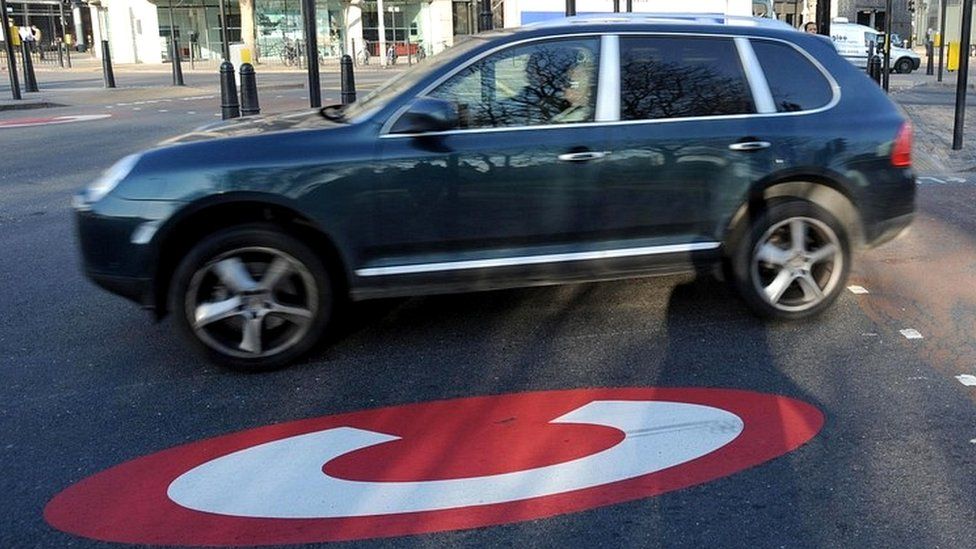London's congestion charge must be reformed, report finds
- Published

London's congestion charge must be changed to target vehicles which contribute to congestion the most, a report has found.
The London Assembly Transport Committee said road users should pay more for using busier roads at peak times.
Chair Caroline Pidgeon said the current system was "too blunt" and the change would be "fairer" for drivers.
Val Shawcross, deputy mayor for transport, said the paper had "some innovative new ideas" to consider.
Congestion getting worse
The committee found average traffic speed had fallen and the road network was having to cope with more vehicles than it had space for.
While private car usage had reduced, there had been an increase in other forms of transport such as delivery vehicles and private hire vehicles.
Road space had also been cut, with more priority given to bus and cycle lanes.
As a result the overall annual cost to the capital from traffic delays had risen 30% in two years, to £5.5bn, the report said.
Ms Pidgeon said "something dramatic" needed to be done as congestion "is costing our city money and costing Londoners their health".
Calling the congestion charge "too narrow", she said a city-wide road pricing scheme should be introduced - charging drivers for when and where they used their vehicles.
Survey of drivers
The committee said such pricing would encourage road users to drive at less congested times and switch to other modes of transport.
According to the report, a survey of drivers found the majority would prefer it to the congestion charge.
At present motorists pay £11.50 a day to drive into central London.
Other recommendations include:
- Controlling when deliveries are made - such as by banning personal deliveries to workers at their offices, reducing restrictions on night-time deliveries and introducing "click and collect" sites at stations
- Setting out new regulations for private vehicles and looking at possibly making them subject to a new road pricing regime
- Continuing road modernisation plans, including adding more Cycle Superhighways
- Planning road works more efficiently and improving communication to drivers about travel problems
Ms Shawcross welcomed the report, saying City Hall had to "be smarter in how we use our roads".
She said the mayoral team was "already taking practical steps to tackle congestion" such as introducing the "hopper" bus ticket to encourage more bus users.
- Published12 January 2017
- Published20 November 2016
- Published15 February 2013